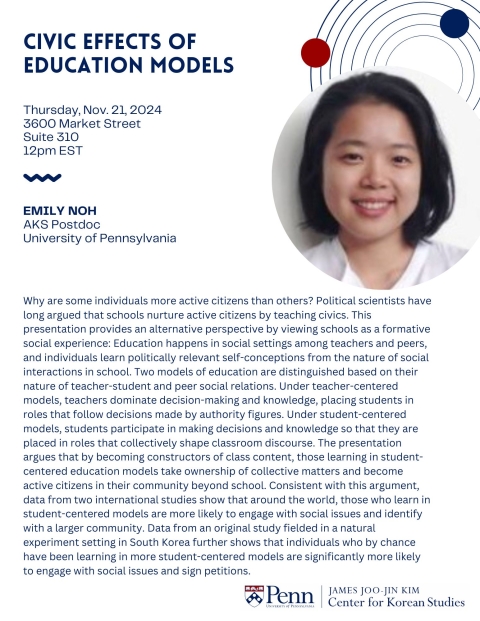
Korean Studies Colloquium
3600 Market Street
Suite 310
Why are some individuals more active citizens than others? Political scientists have long argued that schools nurture active citizens by teaching civics. This presentation provides an alternative perspective by viewing schools as a formative social experience: Education happens in social settings among teachers and peers, and individuals learn politically relevant self-conceptions from the nature of social interactions in school. Two models of education are distinguished based on their nature of teacher-student and peer social relations. Under teacher-centered models, teachers dominate decision-making and knowledge, placing students in roles that follow decisions made by authority figures. Under student-centered models, students participate in making decisions and knowledge so that they are placed in roles that collectively shape classroom discourse. The presentation argues that by becoming constructors of class content, those learning in student-centered education models take ownership of collective matters and become active citizens in their community beyond school. Consistent with this argument, data from two international studies show that around the world, those who learn in student-centered models are more likely to engage with social issues and identify with a larger community. Data from an original study fielded in a natural experiment setting in South Korea further shows that individuals who by chance have been learning in more student-centered models are significantly more likely to engage with social issues and sign petitions.
 James Joo-Jin Kim Center for Korean Studies
James Joo-Jin Kim Center for Korean Studies